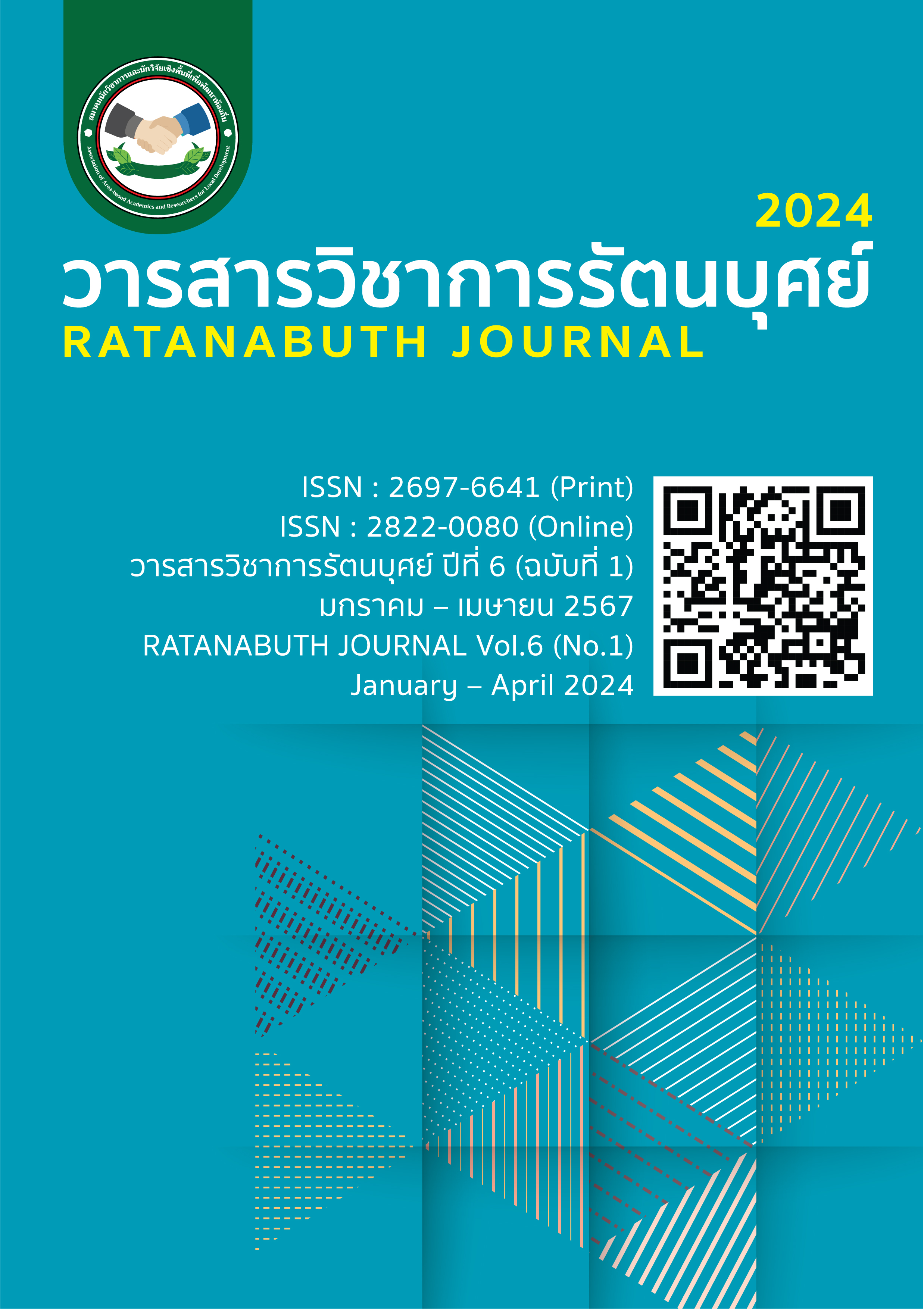The Reimagining Teaching and Learning Development University Mission and Navigating the Thai Education Crisis in the 4.0 Era The Reimagining Teaching and Learning Development University Mission and Navigating the Thai Education Crisis in the 4.0 Era
Main Article Content
Abstract
The educational philosophy of Thailand is a blend of Western ideas and Buddhist principles with a long history of education. Education is seen as a process of learning to develop and enhance individuals' skills to lead a peaceful and happy life. It emphasizes the pursuit of knowledge as a means to improve the quality of life, acquire vocational skills, respect the law, appreciate the value of arts and culture, uphold national traditions, and be prepared to face various challenges. Moreover, education in the era of Thailand 4.0 goes beyond preparing individuals or imparting knowledge to them; it aims to develop fully functioning human beings. Factors influencing Education 4.0 management under the 21st century educational paradigm include leadership qualities, strategic management, personnel management, curriculum design, learning management, and conducive learning environments. Therefore, managing education in universities requires both science and art. School administrators are crucial variables in achieving the objectives outlined in every edition of the National Education Act, and the most significant goal is to foster students who are good, talented, and happy. However, this is not an easy task; it demonstrates the potential of school administrators to overcome these challenges.
Article Details

This work is licensed under a Creative Commons Attribution-NonCommercial-NoDerivatives 4.0 International License.
References
กัญญาภัค ไข่เพชร และจุฬาพรรณภรณ์ ธนะแพทย์. (2565). ภาวะผู้นำเชิงจริยธรรมของผู้บริหารสถานศึกษาในยุคศตวรรษที่ 21. วารสาร มจร อุบลปริทรรศน์, 7(12), 52-64.
เจือจันทร์ จงสถิตอยู่. (2540). การสัมมนาทางวิชาการ: การศึกษาเพื่อพัฒนาคนสำคัญสำหรับสังคมไทยในสองทศวรรษหน้า. ณ ห้องกมลทิพย์ โรงแรมสยามซิตี้ กรุงเทพมหานคร 13 กุมภาพันธ์ 2540
เดโช สวนานนท์. (2552). จิตวิทยาการศึกษา. กรุงเทพฯ : ไทยวัฒนาพานิช.
ประไพ เอกอุ่น. (2542). การศึกษาไทย. กรุงเทพฯ: ภาควิชาพื้นฐานการศึกษา คณะครุศาสตร์ สถาบันราชภัฏ. สวนสุนันทา.
ไพฑูรย์ สินลารัตน์. (2557). ทักษะแห่งศตวรรษที่ 21 ต้องก้าวให้พ้นกับดักของตะวันตก. กรุงเทพฯ:มหาวิทยาลัยธุรกิจวิทยาลัย.
วิทย์ วิศทเวทย์. (2550). มนุษย์กับปัญหาจริยธรรม. (พิมพ์ครั้งที่ 6). กรุงเทพฯ: อักษรเจริญทัศน์.
วิจิตร ศรีสะอ้าน. (2548). หลักการ แนวคิด ทฤษฎีทางการบริหาร. เอกสารประกอบการสอนรายวิชาการวัดและประเมินผลการศึกษา วิทยาลัยศาสนศาสตร์ยโสธร. (เอกสารอัดสำเนา).
วิลาสินี วัฒนมงคล. (2562). วิกฤติการศึกษาไทยยุค 4.0. MBU education Journal: faculty of education Mahamakut Buddhist University, 6(1), 427-444.
วิโรจน์ สารัตนะ. (2549) การบริหาร : หลักการ ทฤษฎีและประเด็น ทางการศึกษา. กรุงเทพฯ: ทิพยวิสุทธิ.
เอกชัย กี่สุขพันธ์. (2559). การบริหารสถานศึกษายุคดิจิทัล (School Management in Digital Era).อ้างถึงใน กัญญาภัค ไข่เพชร และจุฬาพรรณภรณ์ ธนะแพทย์. (2565). ภาวะผู้นำเชิงจริยธรรมของผู้บริหารสถานศึกษาในยุคศตวรรษที่ 21. วารสาร มจร อุบลปริทรรศน์, 7(12), 52-64.
Burns, J.M. (1978). Leadership. New York: Harper & Row.
Hicks, Terry Allan. (2010). Saturn Space. New York: Marshall Cavendish Benchmark.


